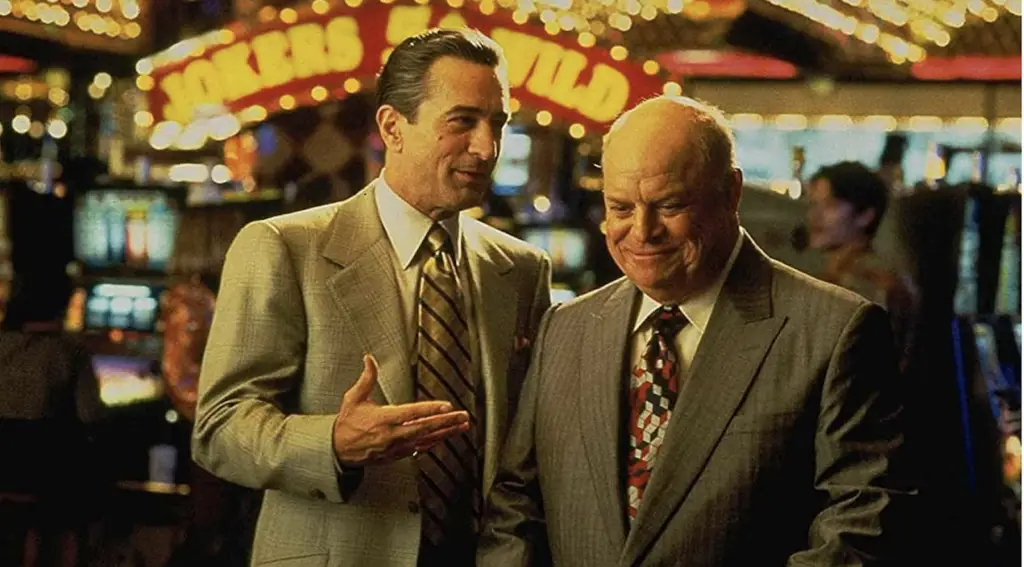
Take six mismatched college students (who follow all the appropriate stereotypes while each having something about them that makes them “unique”) and give them an assignment that requires them to build a utopian society. If you think that’s original, I’ve got a few bridges to sell you.
The back of the DVD box makes mention of how this film has been compared to “The Breakfast Club” by “audiences nationwide.” I don’t doubt that for a single second because this is like “The Breakfast Club Goes To College.” Since there’s no detention in college, the way to force these students together is through the dreaded (and always disastrous) group project. That small difference means nothing, however. The comparison between them, as obvious as it is, is also a dangerous thing. Conjuring up memories of “The Breakfast Club,” a classic loved by many, only serves to make this film seem inferior. Granted, I was never a huge fan of “The Breakfast Club,” but I will admit that it is a far better film than this one if only because of the characters and the fact that it felt fresh when it came out. “The Utopian Society” simply feels like a remake with its heart in the right place, but it suffers from a very fatal flaw.
In this film you have the jock, the frat boy, the hippie chick, the political activist, the studious Asian and the sorority girl. They fight amongst themselves, get drunk, smoke pot, and some even wind up hooking up. In the end they have some difficulty deciding what a utopian society should be, but that’s not really the point of the film. The moral is that no matter the stereotypes, we’re all human, and it’s our differences that make us special.
Since the producers of this film seem to enjoy bringing up “The Breakfast Club,” let’s look at why that works and why this film can’t compete with it. When the conclusion of the long-ago teen classic finally arrives, you’ve seen a bit of your high school self in all the characters, and they ring true. High school was a lot like what was presented there — the good, the bad and the ugly. When Judd Nelson thrusts his fist in the air, it’s a sign of victory for the audience, which is happy because someone finally got it right. When the paper in “The Utopian Society” is finally graded, you realize it is the film that is being graded, and it’s a grade that it deserves. (I won’t spoil it, but it’s not an A.) The reason being that by the time the kids from “The Breakfast Club” would have made it to college, as is the same with all kids, they realize that the moments from high school don’t really change things on any level other than a personal one. They understand that we all have ways to connect. You don’t learn that in college — you already know it by the time you get there.
The characters in “The Utopian Society,” on the other hand, come off as incredibly naive. It also seems like this is the first time they are bonding with anyone outside their little cliques, though all claim to have experience in dealing with others who aren’t like them. So why be social virgins in the situation presented here? Because there’s no other way to make the film work.
No college project I was ever involved in turned out like this. Those who wanted to work got the job done, finishing it to the best of their abilities as quickly as possible so that we wouldn’t have to deal with each other longer than we had to. We all had other things to do, and other projects to tackle. If we weren’t friends going into it, we weren’t going to friends coming out. High school, on the other hand was different. I didn’t do group projects all that much, and when I did there was never time to go into our different personality quirks. I did spend plenty of time in detention, however, and we did bond there (same with on some field trips). That’s why one film works and the other doesn’t. It’s all about setting and the expectations of life’s experiences.
“The Utopian Society” has plenty of good moments, but there are no great ones. It’s less like “The Breakfast Club” for a new generation and more like a cautionary Peter Pan tale. The kids in “The Breakfast Club” grew up on that day. The twenty-somethings in this film should have already done that but haven’t, and that’s just sad.
